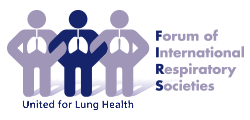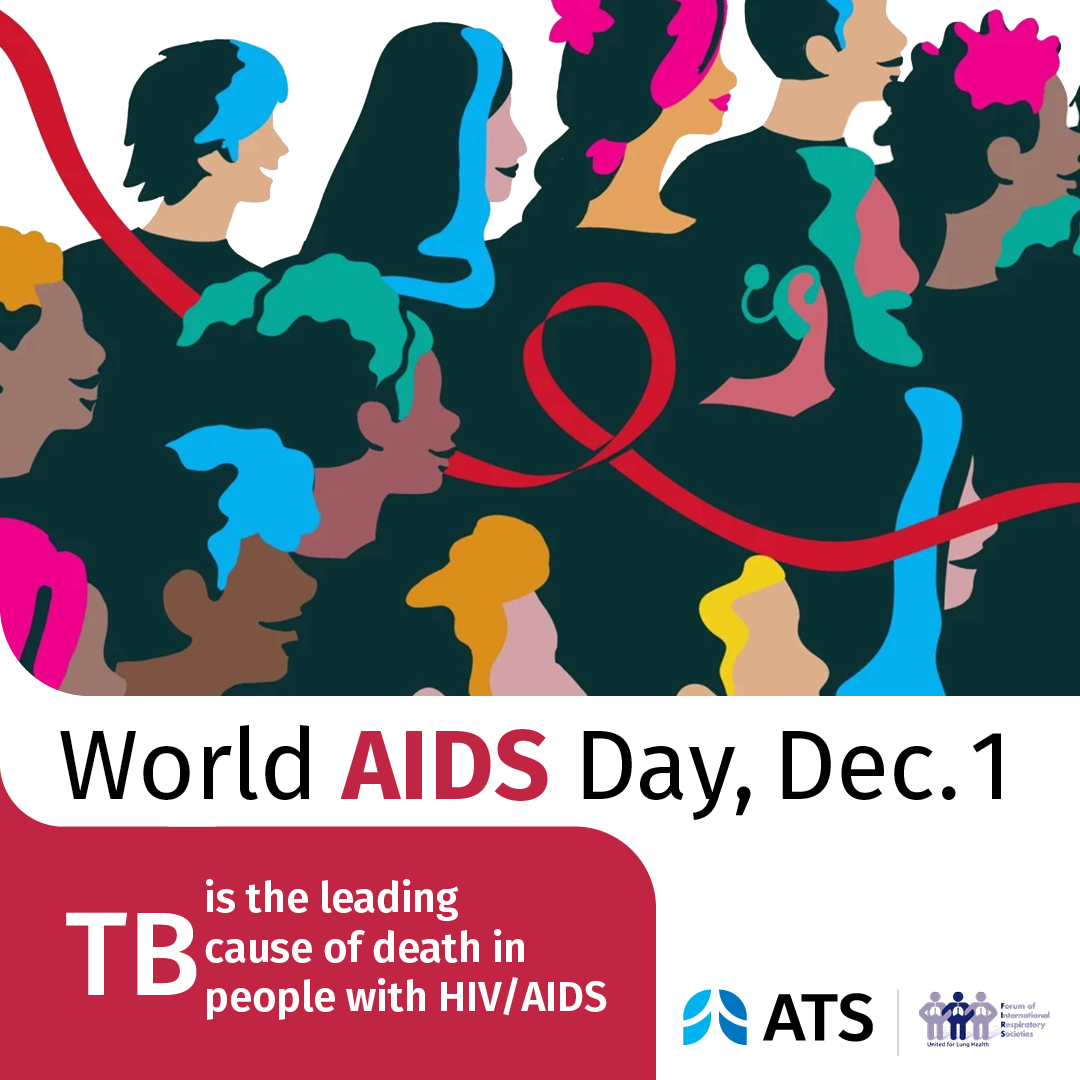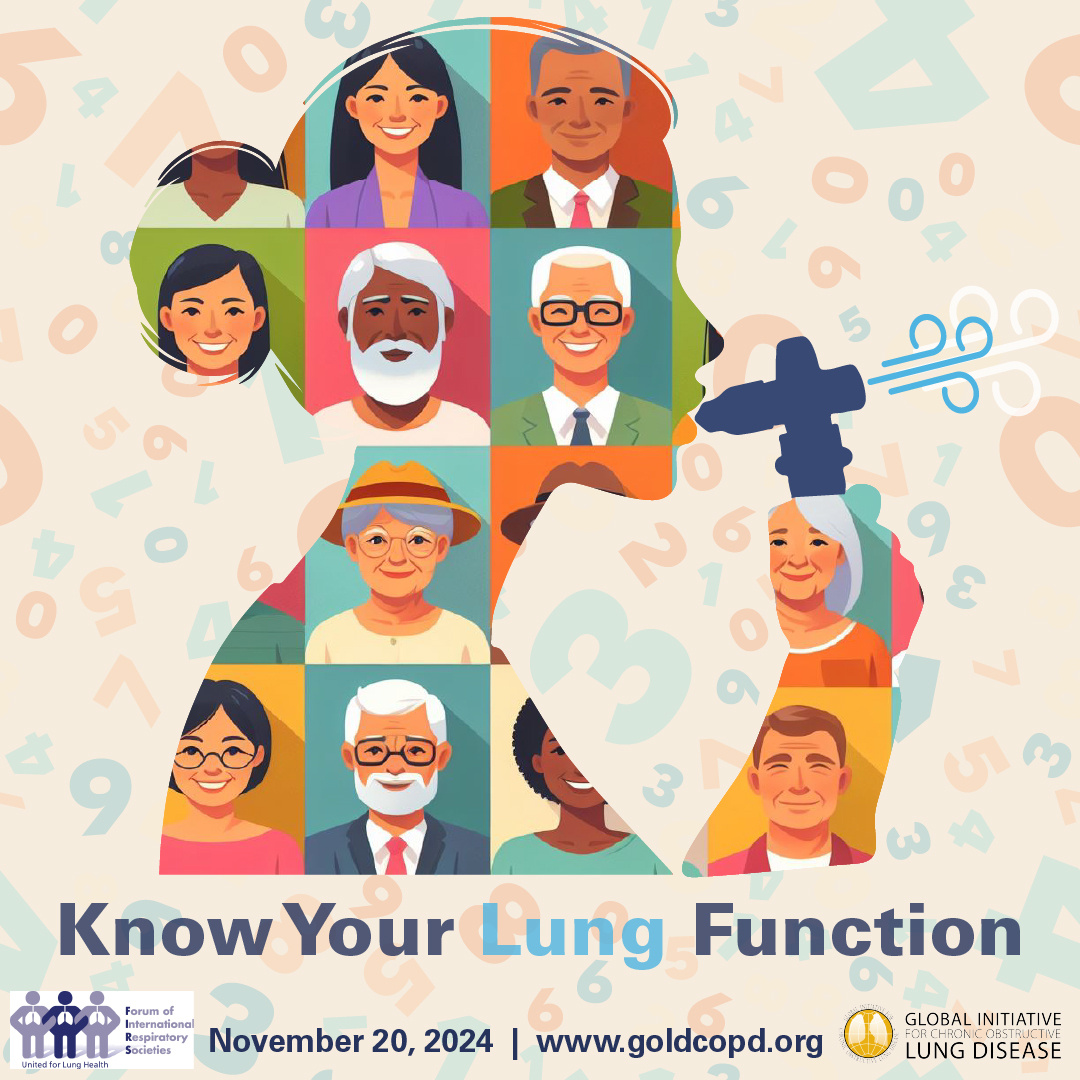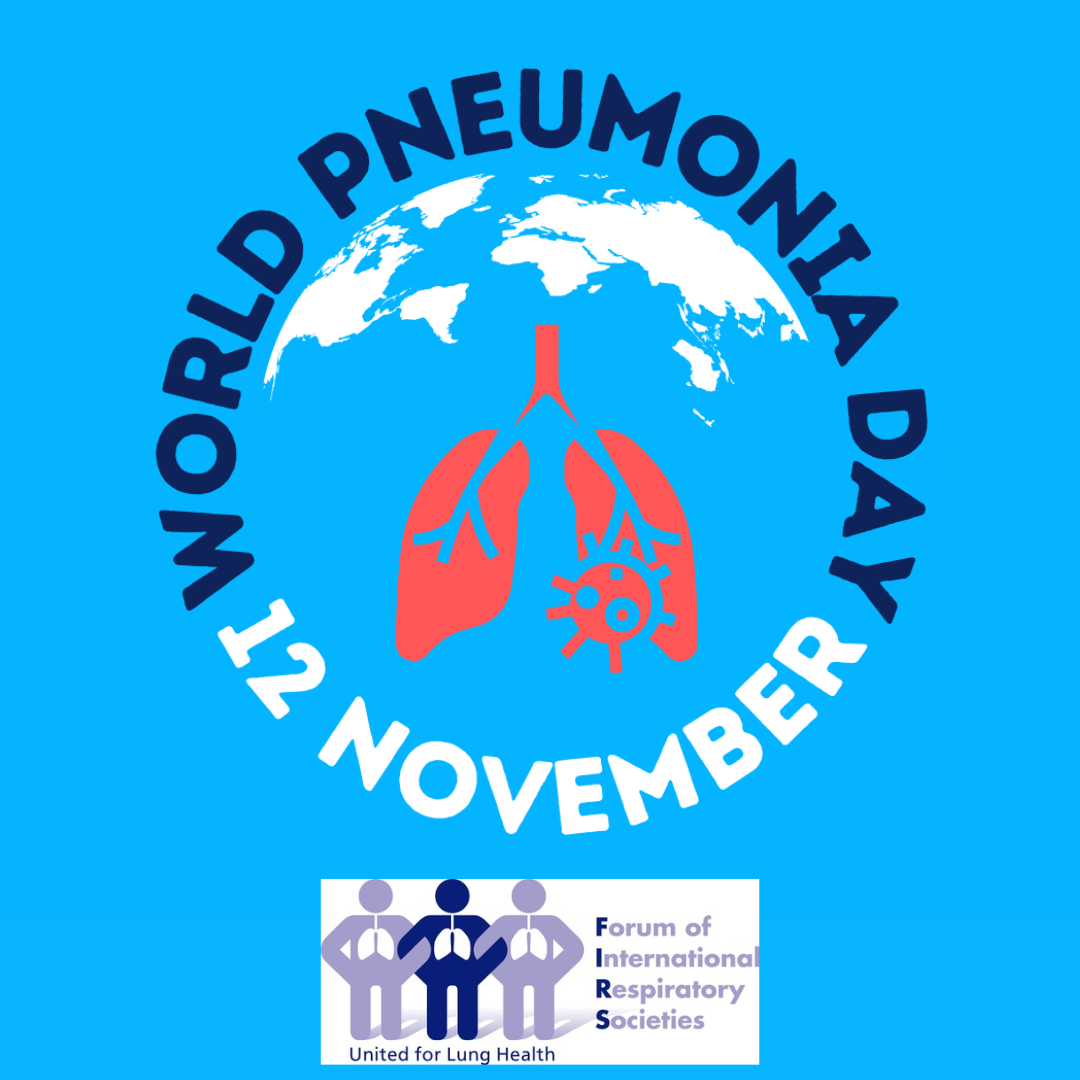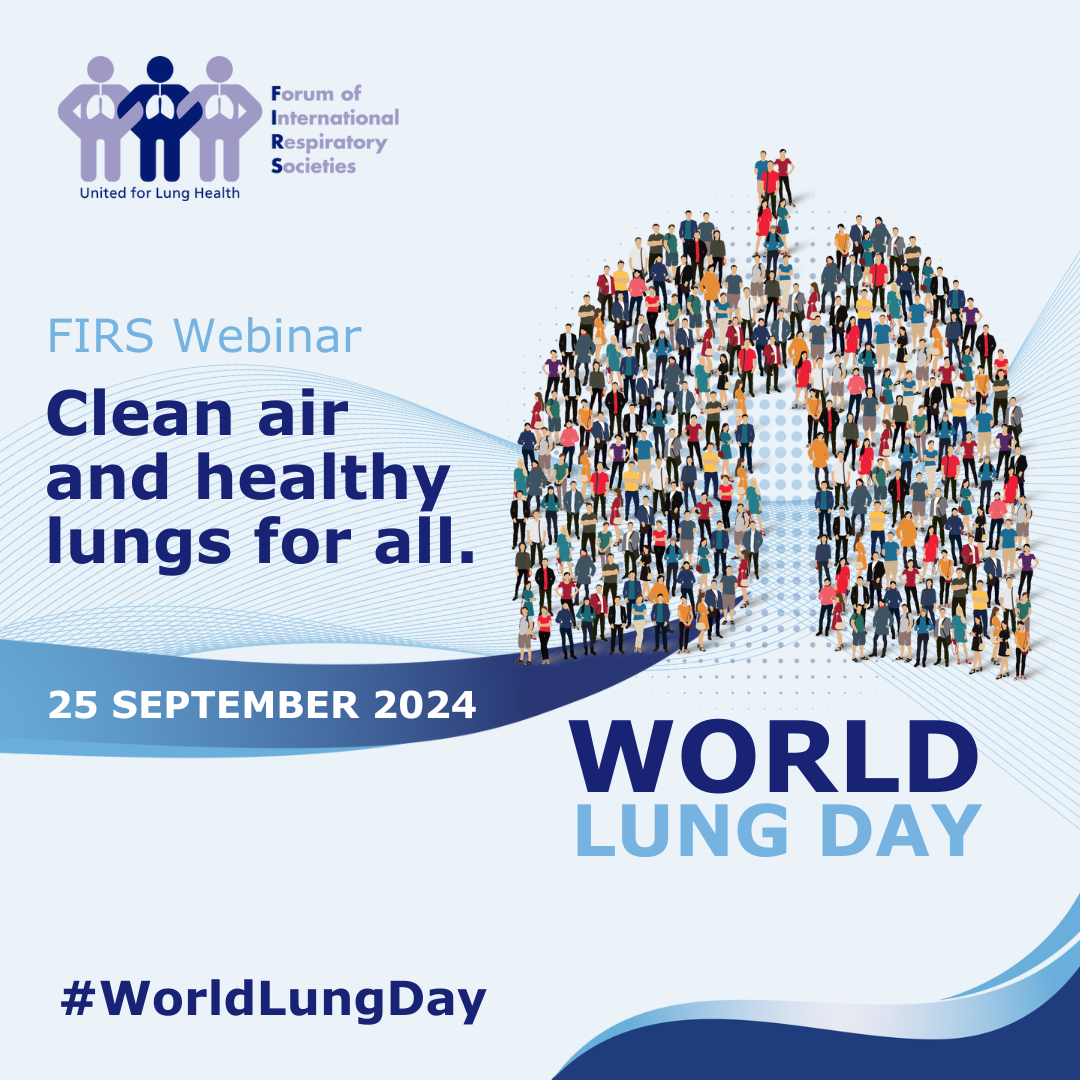Report Outlines Major Causes of Respiratory Disease and Mortality and Lays Out Recommendations for Global Action
GENEVA, May 25, 2017 - The Forum of International Respiratory Societies (FIRS), an organisation comprised of the world’s leading international respiratory societies working together to improve lung health globally, today released “The Global Impact of Respiratory Disease.” The report lays out the tremendous impact that respiratory disease has on world health. Specific diseases addressed include COPD, asthma, acute lower respiratory tract infections, tuberculosis and lung cancer. It also provides several recommendations that global leaders can take to reduce the burden of respiratory disease and improve global health.
The report was released at A Call to Action for Lung Health, a World Health Assembly Side Event held in conjunction with the 70th World Health Assembly. The event included world leaders in respiratory heath, uniting in a call for action to improve lung health globally. An expert panel emphasised the global burden of lung disease, and outlined prevention strategies aligned with sustainable development priorities, including reduction of tobacco use, clean urban air, sustainable energy, climate change mitigation and reducing the spread of infection.
In addition to the Global Impact report, a global charter for lung health, calling for official recognition of a World Lung Day was launched during the event. The goal is to secure 100,000 signatures from healthcare professionals and organisations for subsequent consideration by the World Health Organization for global recognition. Learn more at www.FIRSnet.org.
“Prevention, control and cure of these diseases and promotion of respiratory health must be a top priority in global decision-making in the health sector,” said Dean Schraufnagel, MD, executive director of FIRS. “These goals are achievable, and the control, prevention and cure of respiratory diseases are among the most important cost effective health interventions available. Alleviating the burden of respiratory disease should be a leading strategy of the Sustainable Development Goals and a requirement for nations to achieve.”
Respiratory diseases impose an immense worldwide health burden. Five of these diseases are among most common causes of severe illness and death worldwide [1].
- An estimated 65 million people have moderate to severe chronic obstructive pulmonary disease (COPD), from which about 3 million die each year, making it the third leading cause of death worldwide – and the numbers are increasing [2, 3].
- Approximately 334 million people suffer from asthma [4], which is the most common chronic disease of childhood, affecting 14% of children globally. The prevalence of asthma in children is rising [5].
- For decades, acute lower respiratory tract infections have been among the top three causes of death and disability among both children and adults. Although the burden is difficult to quantify, it is estimated that lower respiratory tract infection causes nearly 4 million deaths annually and is a leading cause of death among children under 5 years old [6]. Moreover, acute lower respiratory tract infections in children predispose for chronic respiratory diseases later in life. Respiratory tract infections caused by influenza kill between 250,000 and 500,000 people and cost between US $71 and $167 billion annually [7].
- In 2015, 10.4 million people developed tuberculosis (TB) and 1.4 million people died from it [8].
- The most common lethal neoplasm in the world is lung cancer, which kills 1.6 million people each year [9]; and the numbers are growing.
Recommendations
FIRS calls for these essential actions to reduce the burden of respiratory disease and improve global health:
- Increase public and policy makers’ awareness that respiratory health is essential to global health and that childhood respiratory disease may have long-term negative consequences on adult health by advocating at world health meetings and through publications and media postings.
- Reduce, and then eliminate, the use of all tobacco products through universal support of the Framework Convention on Tobacco Control 3. Adopt WHO standards, at a minimum, to reduce ambient, indoor, and occupational air pollution for all countries.
- Promote universal access to quality healthcare, including the availability of affordable, quality-assured, essential medicines and universal coverage for childhood and adult immunisations, including new conjugate vaccines by advocacy through WHO and government programmes.
- Improve early diagnosis of respiratory diseases through improving awareness and access to current procedures and the development of new tools through world health meetings and publications.
- Increase education and training of health professionals in respiratory disease worldwide though programmes of the FIRS societies, WHO and other governmental and non-governmental organisations.
- Standardise the monitoring of the prevalence, severity and management of respiratory diseases to enable development of well-informed national strategies though programmes of WHO and governmental and non-governmental organisations.
- Increase respiratory research to develop programmes, tools and strategies to better prevent and treat respiratory diseases though advocacy for governmental and nongovernmental research organisations.
“While respiratory disease has such a tremendous impact on the world’s population, it also is largely preventable, concluded Dr. Schraufnagel. “Investing the resources necessary to prevent and cure these diseases is a cost-effective investment that benefits the entire world. Public policy makers in the healthcare sector need to recognise the size of the problem and take concrete steps now to improve global lung health.”
References:
- GBD 2015 Mortality and Causes of Death Collaborators. Global, regional, and national life expectancy, all-cause mortality, and cause-specific mortality for 249 causes of death, 1980–2015: a systematic analysis for the Global Burden of Disease Study 2015. Lancet 2016; 388: 1459–1544.
- World Health Organization. Global surveillance, prevention and control of chronic respiratory diseases. A comprehensive approach. Geneva, WHO, 2007. Available from: http://www.who.int/gard/publications/GARD_Manual/en/
- Burney PG, Patel J, Newson R, Minelli C, Naghavi M. Global and regional trends in COPD mortality, 1990-2010. Eur Respir J 2015; 45: 1239–1247. Available from: http://erj.ersjournals.com/content/45/5/1239
- Global Asthma Report. Auckland, Global Asthma Network, 2014. Available from: http://www.globalasthmareport.org/resources/Global_Asthma_Report_2014.pdf
- Pearce N, Ait-Khaled N, Beasley R, et al. Worldwide trends in the prevalence of asthma symptoms: phase III of the International Study of Asthma and Allergies in Childhood (ISAAC). Thorax 2007; 62: 758–766. http://thorax.bmj.com/content/62/9/758.long
- Pneumonia: The forgotten killer of children. Geneva, The United Nations Children’s Fund (UNICEF)/World Health Organization (WHO), 2006. Available from: http://www.who.int/maternal_child_adolescent/documents/9280640489/en/
- Influenza (seasonal) Factsheet. Geneva, World Health Organization, 2016. Available from: http://www.who.int/mediacentre/factsheets/fs211/en/
- Global Tuberculosis Report 2016. Geneva, World Health Organization, 2016. Available from: http://www.who.int/tb/publications/global_report/en/
- Torre LA, Bray F, Siegel RL, Ferlay J, Lortet-Tieulent J, Jemal A. Global cancer statistics, 2012. CA Cancer JClin 2015; 65: 87–108. Available from: http://www.ncbi.nlm.nih.gov/pubmed/25651787
About the Forum of International Respiratory Societies (FIRS)
The Forum of International Respiratory Societies(FIRS) is an organisation comprised of the world's leading international respiratory societies working together to improve lung health globally: American Thoracic Society, American College of Chest Physicians, Asociación Latinoamericana De Tórax, Asian Pacific Society of Respirology, European Respiratory Society, International Union Against Tuberculosis and Lung Disease, and the Pan African Thoracic Society. The goal of FIRS is to unify and enhance efforts to improve lung health through the combined work of its more than 70,000 members globally.
